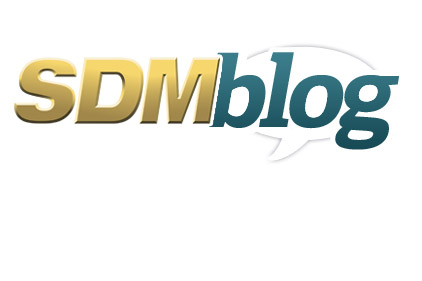ADT’s CTO Debates Cloud Technology, Improvements

Yesterday at the ADT roadshow in Chicago, I heard a reinforced vote of confidence in recent trends, such as cloud computing, mobile security, big data and analytics for a client-funded security model. But a key topic was also ADT itself, especially its recent announcement to be divided into three completely independent factions — ADT (residential and small business), Flow Control and Tyco Integrated Security (commercial).
I met with Jay Hauhn, chief security officer at ADT Security Business Solutions, to discuss the changes to the company and the most popular industry trends.
What key products are you showcasing today?
Hauhn: “We’re trying to put emphasis on our managed services, and managed services for the most part are cloud offerings. Those types of things where we try to reduce the total cost of ownership to customers for services, where before they would have had to buy a tremendous amount of robust hardware and infrastructure. By moving things to the cloud with managed services the total cost of ownership goes down and you can have these unique offerings for much less investment.”
We’ve heard a lot of talk about cloud-hosted video. What are the biggest hurdles you’re seeing in that field?
“Everybody right now is trying to figure out how to put video in the cloud. That is, integrators need to be very careful that whatever you do has to live up to customer expectation, because bandwidth to put video in the cloud is a major issue. You need to make sure that what you’re offering is going to meet the expectation that the customer has, especially when we start pushing it onto [mobile devices], and over the air.
“If I downloaded something from iTunes onto my iPhone, a video, it comes over pretty good. But now the expectation is there that security video is going to be just as good. But with bandwidth and grainy video, there’s a lot of room for a customer to not be happy. You have to know what you’re doing and specify what you’ve got right up front. That’s the biggest concern.
“You have to have guys who understand IP and not just be able to spell it.”
What solutions do you think that chief security officers would be most interested in, in terms of the cloud?
“In security, traditionally, the budget spent is usually an afterthought, or it’s always a necessary evil. So to get really robust security systems are most frequently a rather extensive capital investment. The main advantage of cloud applications is it reduces the capital expense required for that total cost of ownership.
“So what it’s really going to do is enable security directors to implement applications they may not have been able to do before. Just some of the things with, say, more robust card access systems where they may have wanted some of the features that were in a high-end card access system, but they couldn’t afford to buy it, so they bought an entry-level card access system. Now, you can take that high-end card access system, put it in the cloud and boom! They’ve got all the features that were there at much, much, much less cost.
“And it’s a win-win for integrators. Because traditionally, video and card access — you sold them and there wasn’t really any recurring revenue, unless you were fortunate enough to sell a maintenance contract or a support agreement. Now, with managed services and cloud agreements, every one of them comes with recurring revenue.
“The customer gets a very robust application at a reduced cost, and the integrator gets recurring revenue — win-win.”
Tell me about the recent split. What does this mean for your customers?
“It’s a pretty exciting time for us. ADT split their company a couple years ago — not to split financially but to make the companies closer to the customer. What residential customers expect is much different than what commercial customers expect. And it really, really worked well. Now that we’re absolutely splitting in half — and there will be no overlap — is that Tyco and commercial business can focus 100 percent on commercial customers… Even the name, Tyco Integrated Security, is there to show what we really do.”
Hauhn also mentioned advances in varying fields, including stereoscopic (3-D) camera technology and related computer analysis, smart card technology in next-generation smartphones and other devices, and big data.
“All that data now is very, very valuable to the business leaders. It’s not only capturing information about security and preventing bad things from happening, it’s capturing one heck of a lot of information about what’s going on in your enterprise,” he said during a presentation on how emerging technologies help to drive business efficiency. “And that data is very valuable if you take it and feed it back into the business intelligence system. Once that happens, instead of money spent on security systems being a necessary evil, your ROI becomes much more measurable. You can’t measure ROI just preventing bad things from happening. But once the data from the security system goes back into the business, then that data is leading to operation improvement.”
Hauhn said to aim on focusing your intelligence system and situational awareness, which will help security directors to repackage the information into analytics that are meaningful to marketing departments and can help mitigate future risks.